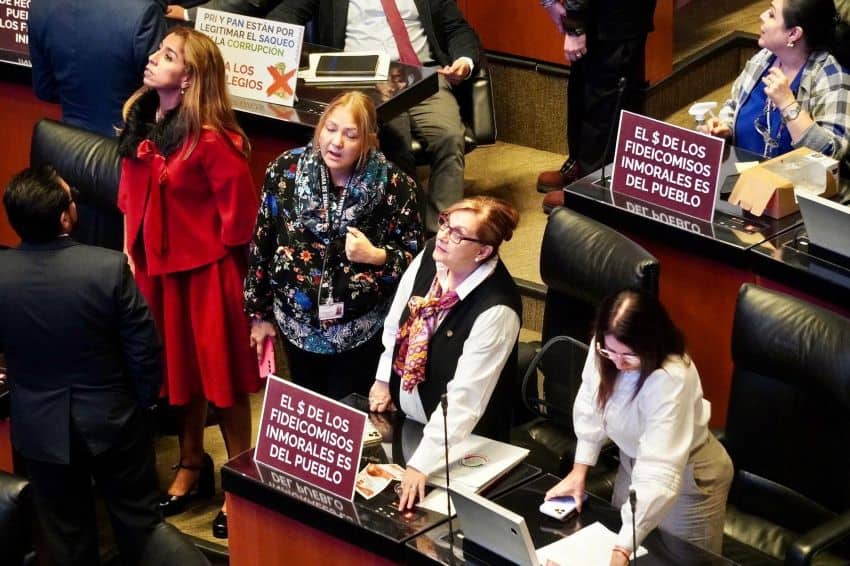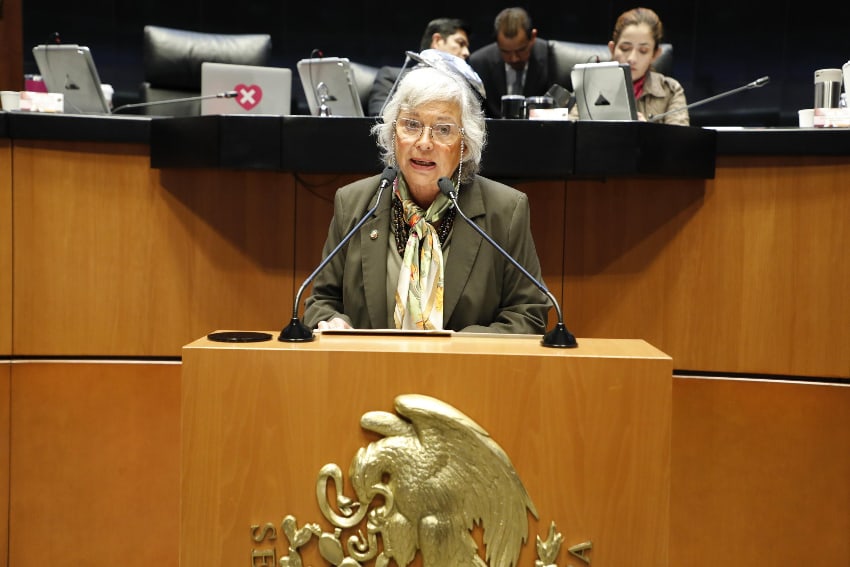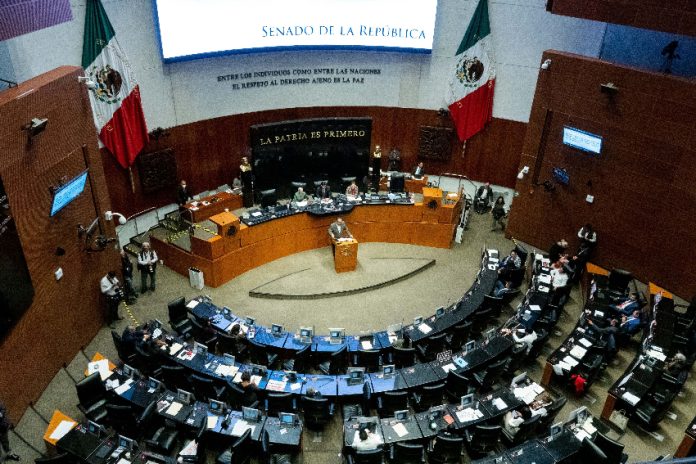The Senate on Wednesday voted to eliminate 13 public trusts that help fund the federal judiciary, prompting court workers to extend their six-day-old strike for an additional five days.
Most senators with the ruling Morena party and its allies voted in favor of doing away with the trusts, which hold over 15 billion pesos (US $817.8 million). The bill, which passed the Chamber of Deputies last week, will now be promulgated by publication in the government’s official gazette.

President López Obrador says that the purpose of eliminating the trusts is to reduce the privileges enjoyed by those occupying the highest ranking positions in Mexico’s judicial system, including Supreme Court justices.
The president – a frequent critic of what he sees as a judicial system at the service of a “rapacious minority” rather than the majority of Mexicans – asserts that lower-ranking court workers won’t be affected, but the Supreme Court, and the workers themselves, disagree, citing a negative impact on “pension, housing, health coverage and retirement” rights.
As a vote on the bill to terminate the trusts was held in the Senate in the early hours of Wednesday morning, court employees protested outside the upper house. A total of 67 senators supported the bill, while 49 opposed it. Twelve senators, including presumptive opposition presidential candidate Xóchitl Gálvez, were absent.
Olga Sánchez Cordero, a former interior minister in the current government and an ex-Supreme Court justice, was among a small group of Morena senators who opposed the elimination of the 13 trusts. She argued that five of the trusts should be maintained, asserting that they provide essential benefits including healthcare to tens of thousands of workers and their families.

Sánchez also said that some of the money held in the trusts comes from contributions made by court workers. The government intends to use the trust funds for its welfare and social programs.
“We must defend the judicial power, but the judicial power also has to change some things,” Sánchez said.
“I’m convinced that defending these trusts that are destined for extinction is to defend federal judicial workers,” she said before the vote was held.
Claudia Ruiz Massieu, an independent senator formerly affiliated with the Institutional Revolutionary Party, asserted that the aim of the bill is to “blow up the independence the judicial power needs to fulfill its duties and dissolve the principle of separation of powers that is uncomfortable for a president of authoritarian character.”

The Morena party has argued that the trust funds haven’t been managed with transparency and afford undue privileges to Supreme Court justices and other judges. The bill, backed by López Obrador and Morena, states that the existence of “economic benefits of privilege” that go to “a very small group of officials” is absolutely unacceptable.”
Court employees affiliated with the Union of Federal Judicial Power workers have held several protests against the government’s plan and stopped working last Thursday. The strike was scheduled to conclude on Tuesday, but was extended until this Sunday in light of the Senate vote in favor of the elimination of the trusts. However, the union said there will be no consequences for employees who decide to return to work this week.
López Obrador on Wednesday said that he respected his former interior minister’s decision to go against her party and vote against the elimination of the trusts. Sánchez “was a Supreme Court justice and there is always union solidarity,” he said.
López Obrador – who has been frustrated by court rulings against the government and hopes to change the constitution next year so that citizens have the right to elect judges – also took the opportunity to once again rail against the high salaries of Supreme Court justices.
“They earn 700,000 pesos a month in a country where the average salary of workers is 16,000 pesos. … They’re violating the constitution … [as] it’s established that … [no public servant] can earn more than the president,” he said.
López Obrador has claimed that lower-level court workers are being “used” and manipulated” by their more senior colleagues.
On Wednesday, he questioned why workers earning 7,000 or 8,000 pesos per month participated in a march in support of 700,000-peso salaries. “A lot of information is needed,” López Obrador said.
With reports from Reforma, El Financiero, Milenio and El Universal
